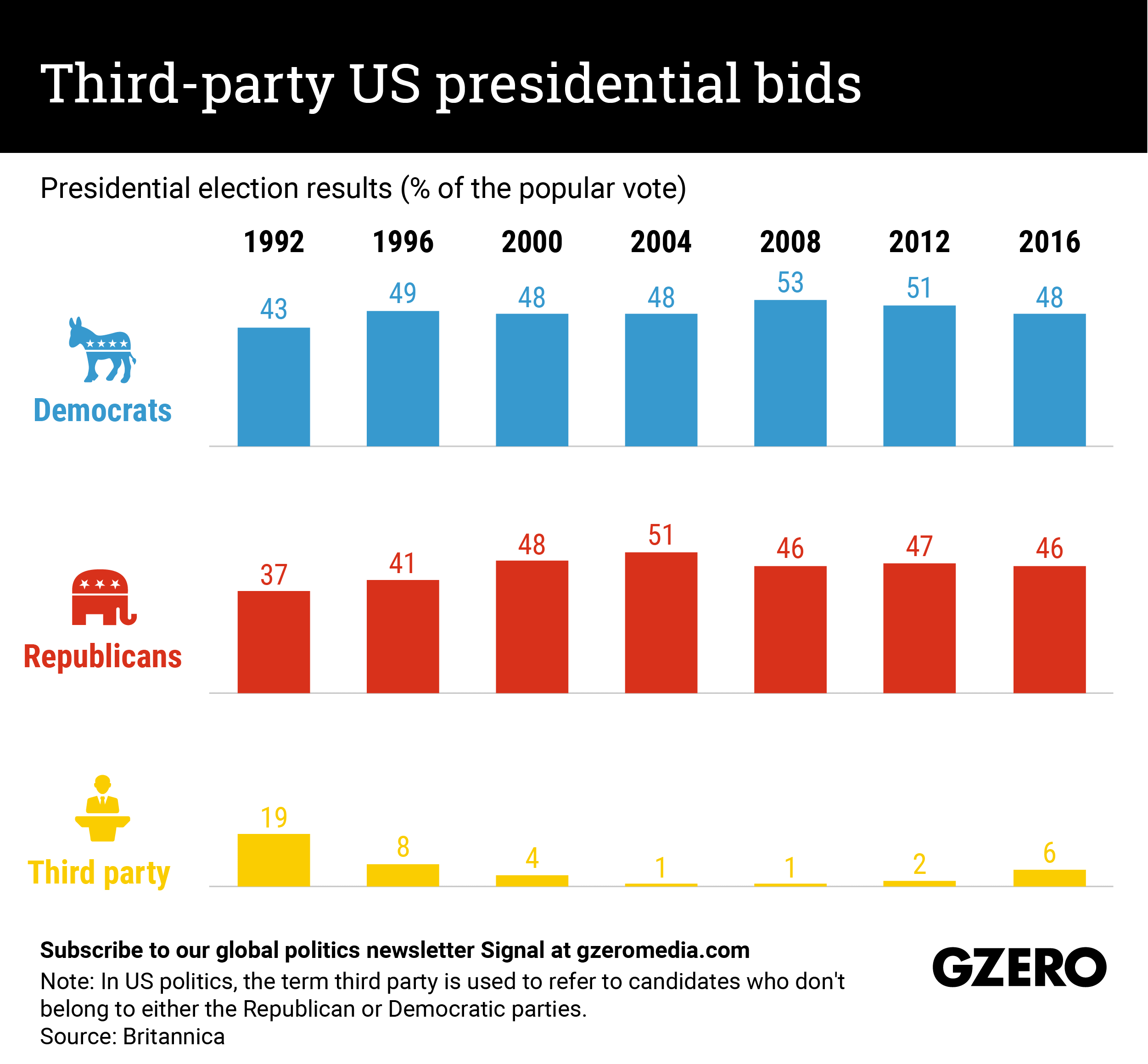September 01, 2020
John Adams, the second president of the United States, warned that the domination of the political system by two parties would inevitably become a "great political evil." Looking at the hyper-partisan state of US politics in 2020, it appears that Adams was onto something. Since the mid-1800s, the executive and legislative branches have been dominated by the Republican and Democratic parties. While historically presidential hopefuls outside the mainstream — commonly known as third-party candidates — have failed to make a dent in the two-party system's lock on power, at times they have garnered enough support to significantly impact the way that votes are distributed, thus influencing the outcome. Here's a look at how third-party candidates have performed in US presidential elections since 1992.
From Your Site Articles
More For You
Most Popular
The Guinea-flagged oil tanker MT Bandra, which is under sanctions, is partially seen alongside another vessel at El Palito terminal, near Puerto Cabello, Venezuela, on December 29, 2025.
REUTERS/Juan Carlos Hernandez
There have been several geopolitical shocks this year, yet none have stopped oil prices from plunging, showing how oil markets have become more risk tolerant.
- YouTube
In this "ask ian," Ian Bremmer analyzes Trump’s recent meeting with Zelensky and how close (or far) Russia and Ukraine are from a peace deal.
© 2025 GZERO Media. All Rights Reserved | A Eurasia Group media company.
